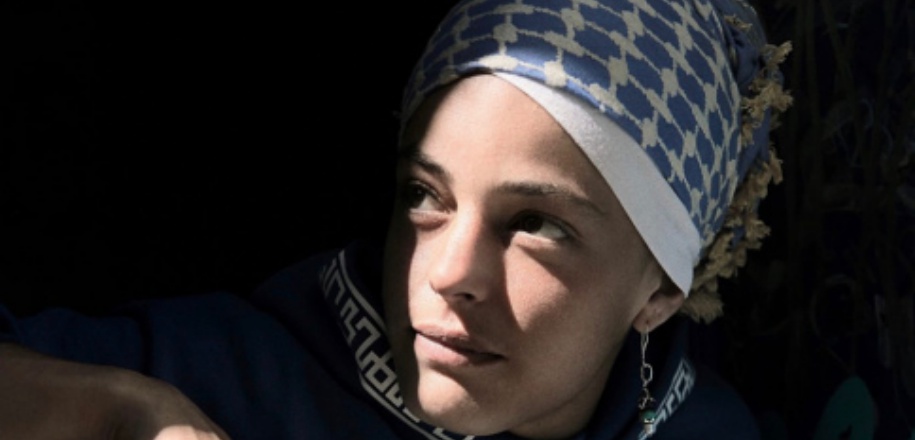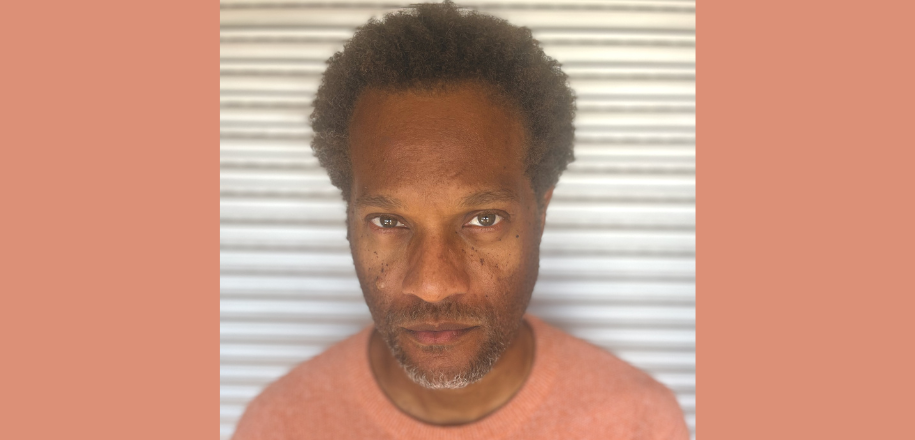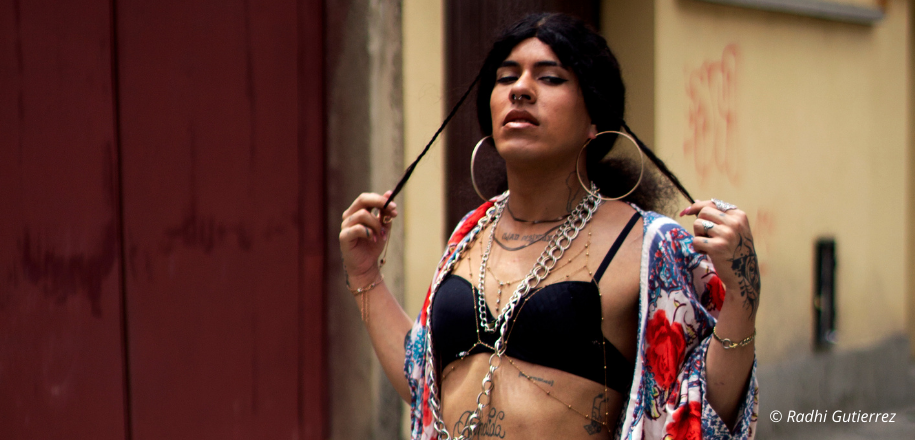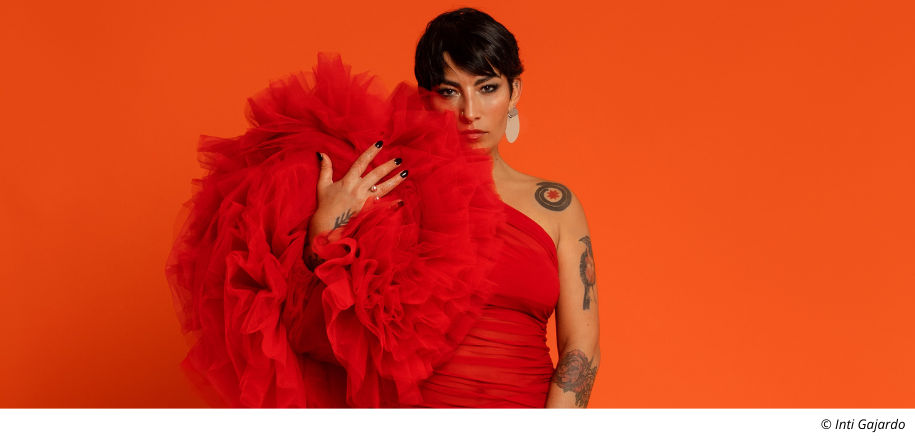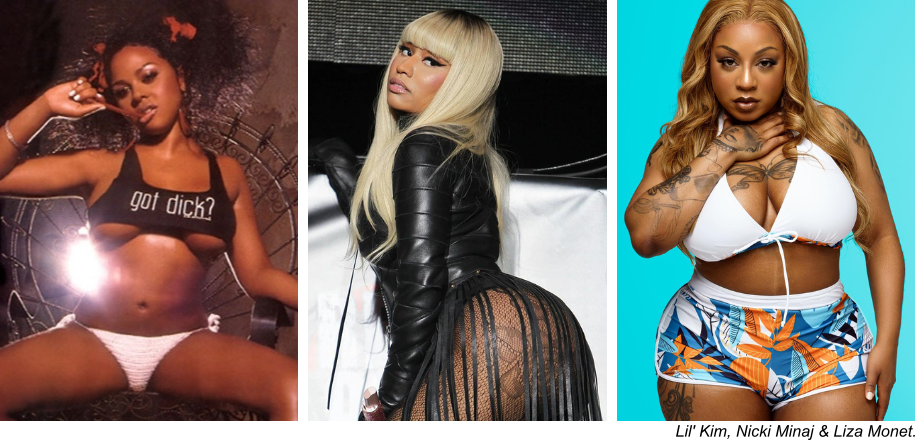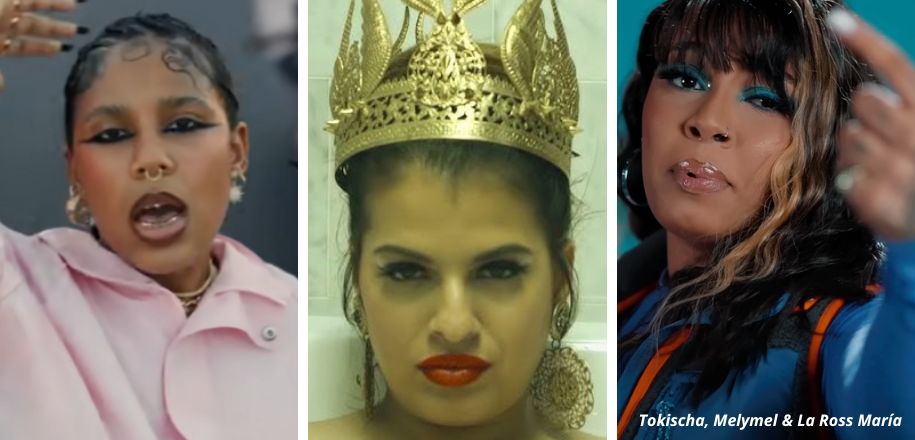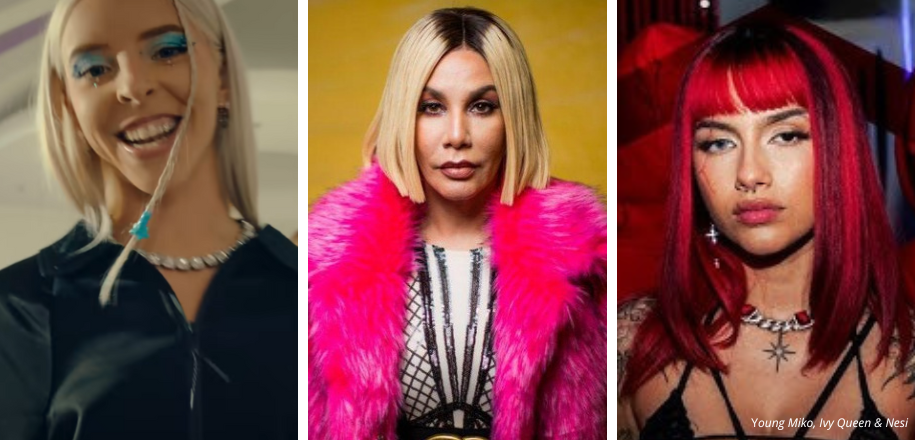Some media call you “a rap protester” instead of a rapper. What do you think is the difference between the two?
The media very often used that phrase, which comes from my first album Entre ciment et belle étoile, but I never declared myself so. This expression means that my priority is to make my art serve the causes that matter to me. But I was also born in rap, I grew up in it, learned the ropes and didn’t come along for the ride.
Has this label harmed you or kept you away from the media?
I never really wanted to play the media’s game. When I released “La rage” ten years ago, many TV channels wanted to invited me and I often declined. The mass media, no way! I never was ambitious or wanted to release records. If I can be useful and touch people, good for me. But it’s mostly word of mouth and concerts that work, and not the media. Because the day they stop following you, you have no one left. Bombarding people on the radio is not my state of mind. Without pretension, I’d rather have my music serve things that are fair to me. I don’t know show-business and I’m not interested in this world.
You’re also called an anti-globalist, anticapitalist, anarchist, revolutionary, anticolonialist… How do you really define yourself?
Actually, it is again a label, but I am just a human who makes music, has ideas and tries to share them.
I participated in several anti-globalist forums in Porto Alegre or Bamako and you can find everything there, even fascists. It is a heterogeneous movement that gathers people who have very different ideas. I’m also called an anarchist, but I’m not. If I were one, I wouldn’t have sold my CDs. Besides, even if I don’t have any religion, I am a believer, and that is complicated for anarchists!
I think the solution is autonomy and self-management. The more people will constitute networks, create villages or spaces, the more it will help build new societies at a human scale. I believe in grassroots change and not in voting or overthrowing the state. It is our duty to build tomorrow’s world. The system will then be disturbed and will fall by itself, because without us, it is nothing. All that is not utopian, it is in the spirit of the times. Many young people go back to agriculture and build their own village or organization.
Would you say your rap is political?
My rap is human. I don’t write political dissertations and everything comes through an emotional or spiritual filter. If by “political” you mean the organization of society, then yes. But everything is political, smiling to a beggar also is. In any case, I am not a politician and will never be. I am a people’s artist. My songs tell my life but don’t fall into any political box. Besides, today, I can’t relate to anyone, politically speaking. Apart from the Zapatist movement.
Four years after your last album Tout tourne autour du soleil, you just released an EP called Etat d’urgence. What have you been doing during these four years?
In 2013, I was on tour and then left for Mexico, where I was invited for a Zapatist project. It was supposed to last for a few weeks but I ended up staying for a year. I came back to France at the end of 2014. I still live in Marseille in the same neighborhood and mix with the same people. I finished Etat d’urgence after dealing with some personal stuff and going back to writing.
Your EP is available at open pricing. Why this choice?
I’ve been wanting to try open pricing for a long time. Besides, I didn’t really want to sell this EP. In France, the idea of giving something to people is misconceived. Something free is perceived as botched or worthless. So, it is a way for me to let people give it the worth they want and also to have it for free (they don’t have to give money to download it). I didn’t expect much, but I am very pleasantly surprised. People are very generous, even if they often ask for the CD too!
What do you think of the current hip hop scene in France?
I used to find more depth and emotion in the 90’s rap. Today’s rap lacks content and messages, no matter what they are.
When I traveled, I met several South-American artists. There, hip hop has a social impact and is perceived as a way to convey a message or bring new ideas. French rap is all about business, it’s been a while since the rap game has killed hip hop. The rap record industry has been powerful for about 30 years. It’s not the case in all the other countries.
In France, hip hop is still thought bad of, boycotted or considered as a subculture by the media, whereas it is the music people most listen to. When you look at the best-selling artists, you find only rappers, and yet, you don’t see them on TV.
Do you consider yourself a feminist? Why?
Feminist, no, but anti-patriarchal, yes. I think some feminist organizations can be aggressive and exclude male members with many discussions in single-sex spaces. That’s too bad because guys also suffer from patriarchy, it’s not easy for them too.
There are a lot of different feminisms, but I met many radical feminists and I believe they were full of hatred and resentment. I don’t think the solution lies in reversing the trend. I know opposites attract, but a happy medium is also nice. I’m not for exclusion, I think we should all think and discuss together and try to understand each other.
Of course, I am for everybody’s rights, women, children, animals, I’m for justice, or rather rightness, for all minorities.
What are you listening to these days?
I’m listening to a lot of instrumentals, rap but also all kinds of music. I couldn’t give you a name in particular, but I keep posted about new releases.
What are your upcoming projects?
I’m working on L’esquisse 3, the album I put in brackets to make Etat d’urgence. After, I’ll go back on tour again, making concerts everywhere in the world.
What do you think of Madame Rap? What should be changed or improved?
I am not very connected – in my neighborhood, people call me the cavewoman – so I haven’t looked yet, but I find the idea very interesting!
Find Keny Arkana on her website, Facebook, and YouTube.

